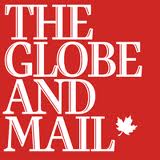 Most people would agree that good decisions are made when there is evidence to support a course of action. Policy-making is no different. Evidence-base policy-making is held up as the highest standard of decision making – in contrast to ideological or partisan decision-making. To make decisions in an information vacuum can easily be a recipe for disaster. Countless examples are known of policy implementations that had absolutely no effect on solving the problems they were intended to address (see Young, 2013 for Canadian examples). At best, this situation is a waste of time and money. At worst, it exacerbates the initial problem making it even more difficult to solve. Part of the challenge in evidence-based policy-making, often noted by writers on the subject, is the so-called “science-policy gap” (e.g. Sarewitz, 2013). However, the gap is a difficult concept to define. Some describe it as a failure of communication by scientists to policy makers, others as a lack of scientific or political literacy that erodes two-way communication. Studies about how scientific research is communicated by scientists and received by end-users are usually undertaken from either a scientific or an end-user perspective and are often quick to blame one or the other side for communication challenges (e.g. Lalor and Hickey, 2013). Some, though, offer a more comprehensive perspective on the issue of cross-discipline communication (e.g. Coffey and O’Toole, 2012, McNie, 2007). The reality is that both parties have room for improvement.
Most people would agree that good decisions are made when there is evidence to support a course of action. Policy-making is no different. Evidence-base policy-making is held up as the highest standard of decision making – in contrast to ideological or partisan decision-making. To make decisions in an information vacuum can easily be a recipe for disaster. Countless examples are known of policy implementations that had absolutely no effect on solving the problems they were intended to address (see Young, 2013 for Canadian examples). At best, this situation is a waste of time and money. At worst, it exacerbates the initial problem making it even more difficult to solve. Part of the challenge in evidence-based policy-making, often noted by writers on the subject, is the so-called “science-policy gap” (e.g. Sarewitz, 2013). However, the gap is a difficult concept to define. Some describe it as a failure of communication by scientists to policy makers, others as a lack of scientific or political literacy that erodes two-way communication. Studies about how scientific research is communicated by scientists and received by end-users are usually undertaken from either a scientific or an end-user perspective and are often quick to blame one or the other side for communication challenges (e.g. Lalor and Hickey, 2013). Some, though, offer a more comprehensive perspective on the issue of cross-discipline communication (e.g. Coffey and O’Toole, 2012, McNie, 2007). The reality is that both parties have room for improvement.
A recent article published in The Globe and Mail by Paul Zehr (see link below) provides a different take on the science-policy interface, namely, the lack of scientific literacy by society at large. According to Zehr, people generally do not understand what science is and, more importantly, what science is not. Science is not absolute, nor is it definitive. It is an attempt at ordering the seeming disorder of the universe into theories to describe why things are the way they are. Science is also fluid; it is possible to alter or dismiss a theory when new information comes to light that challenges an existing explanation. Science is a process and a way of learning. Many individuals do not understand the nuances of scientific endeavor, which poses serious challenges when trying to communicate scientific information effectively.
As an example of where public science literacy may have been of use, Zehr refers to the frequently cited anti-vaccine phenomenon. He suggests that the problem of rampant misinformation about the side-effects of vaccines could have been mitigated by higher levels of science literacy. If more of the general population had the skills to critically evaluate information, especially information presented as scientific findings, would the anti-vaccine movement have gained so much traction? Arguably not. So, how do we solve this problem? We can’t very well send everybody back to school. Zehr suggests that the way scientific information is communicated to the public needs to change. Journalists with a scientific background, or at least an honest desire to communicate scientific findings well, and scientists entering the realm of journalism need to be at the forefront of communication of science to the public.
References
Coffey, B., & O’Toole, K. (2012). Towards an improved understanding of knowledge dynamics in integrated coastal zone management: A knowledge systems framework. Conservation and Society, 10 (4), 318-329.
Lalor, B.M., & Hickey, G.M. (2013). Environmental science and public policy in executive government: Insights from Australia and Canada. Science and Public Policy, 40, 767-778.
McNie, E.C. (2007). Reconciling supply of scientific information with user demands: An analysis of the problem and review of the literature. Environmental Science and Policy, 10, 17-38.
Sarewitz, D. (2013, October 31). Science’s rightful place is in service to society. Nature, 502, 595.
Young, S.P. (Ed). (2013). Evidence-based policy-making in Canada. Don Mills: Oxford University Press.
Zehr, E.P. (2014, August 11). Science writers can help raise knowledge. The Globe and Mail. Retrieved from http://www.theglobeandmail.com/news/british-columbia/science-writers-can-help-raise-knowledge/articles19998156/
Author: Sarah Chamberlain